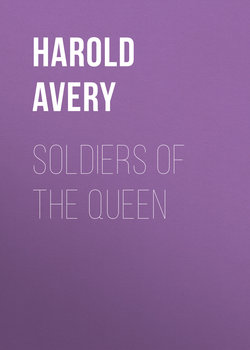Читать книгу Soldiers of the Queen - Avery Harold, Whishaw Frederick - Страница 6
CHAPTER VI.
A KEEPSAKE
Оглавление"He is my own child, and he is not so very ugly after all, if you look at him properly." – The Ugly Duckling.
The holidays passed too quickly, as they always did at Brenlands. Jack was no longer the ugly duckling. Whatever misunderstanding or lack of sympathy might have existed hitherto between himself and Valentine had melted away in the sunny atmosphere of Queen Mab's court; and since the incident of the magpie's nest, the two boys had become fast friends.
Soldiering was their great mutual hobby. They constructed miniature earthworks in the garden, mounted brass cannon thereon, fired them off with real powder, and never could discover where the shots went to. They read and re-read "A Voice from Waterloo," the only military book they could discover in their aunt's bookcase; and on wet days the bare floor of the empty room upstairs was spread with the pomp and circumstance of war. The soldiers had a wonderful way of concealing their sufferings; they never groaned or murmured, and, shot down one day, were perfectly ready to take the field again on the next, and so when the solid lead captain or die mounted officer who took on and off his horse was "put out of mess" by a well-directed pea, the knowledge that they would reappear ready to fight again another day considerably lessened one's grief at the sight of their fall. Perhaps, after all, lead is a more natural "food for powder" than flesh and blood, and so the only time tears were shed over one of these battles was one morning when Barbara surreptitiously crammed two dozen peas into her mouth, fired them with one prolonged discharge into the midst of Valentine's cavalry, and then fled the room, whereupon Jack sat down and laughed till he cried.
It would be difficult to say what it was that made Queen Mab's nephews and nieces like to wander out into the kitchen and stand by her side when she was making pastry or shelling peas; but they seemed to find it a very pleasant occupation, and in this, after the first week of his stay, Jack was not a whit behind the others.
He was sitting one morning on a corner of the table, watching with great interest his aunt's dexterous use of the rolling-pin.
"Well, Jack," she said, looking up for a moment to straighten her back, "are you sorry I made you come to Brenlands?"
"No, rather not; I never enjoyed myself so much before. I should like to stay here always."
"What! and never go home again?"
The moment that word was mentioned he was once more Fenleigh J. of the Upper Fourth.
"Home!" he said; "I hate the place. I've got no friends I care for, and the guv'nor's always complaining of something, and telling me he can't afford to waste the money he does on my education, because I don't learn anything. I do think I'm the most unlucky beggar under the sun. I've got nothing to look forward to. But I don't care. When I'm older I'll cut the whole show, and go away and enlist. Any road, I won't stay longer than I can help at Padbury."
Queen Mab smiled, and went on cutting out the covering for an apple-tart.
"I know you like soldiers," she said; "well, listen to this. Just before the battle of Waterloo, the father of Sir Henry Lawrence was in charge of the garrison at Ostend. He knew that some great action was going to take place, and wished very much to take part in it; so he wrote to Wellington, reminding him that they had fought together in the Peninsular War, and asking leave to pick out the best of the troops then under his command and come with them to the front. The duke sent him back this reply, – 'That he remembered him well, and believed he was too good a soldier to wish for any other post than the one which was given to him.'"
"You're preaching at me," said Jack suspiciously; "it's altogether different in my case."
"No, I'm not preaching; I'm only telling you a story. Now go and find my little Bar, and say I've got some bits of dough left, and if she likes she can come and make a pasty."
Barbara came, and Jack assisted her in the manufacture of two shapeless little turn-overs, which contained an extraordinary mixture of apples, currants, sugar, and a sprinkling of cocoa put in "to see what it would taste like." But the boy's attention was not given wholly to the work, his mind was partly occupied with something else. He wandered over and stood at the opposite end of the table, watching Queen Mab as she put the finishing touch to her pie-crust, twisting up the edge into her own particular pattern.
"I don't see why people shouldn't wish for something better when they have nothing but bad luck," he said.
"I don't think people ever do have nothing but bad luck."
"Yes, they do, and I'm one of them. I hate people who're always preaching about being contented with one's lot."
"You intend that for me, I suppose," said his aunt, slyly. "All right; if you weren't out of reach I'd shake the flour dredge over you!"
"No, you know I don't mean you," said the boy, laughing. "And I have had one stroke of good luck, and that was your asking me to Brenlands."
